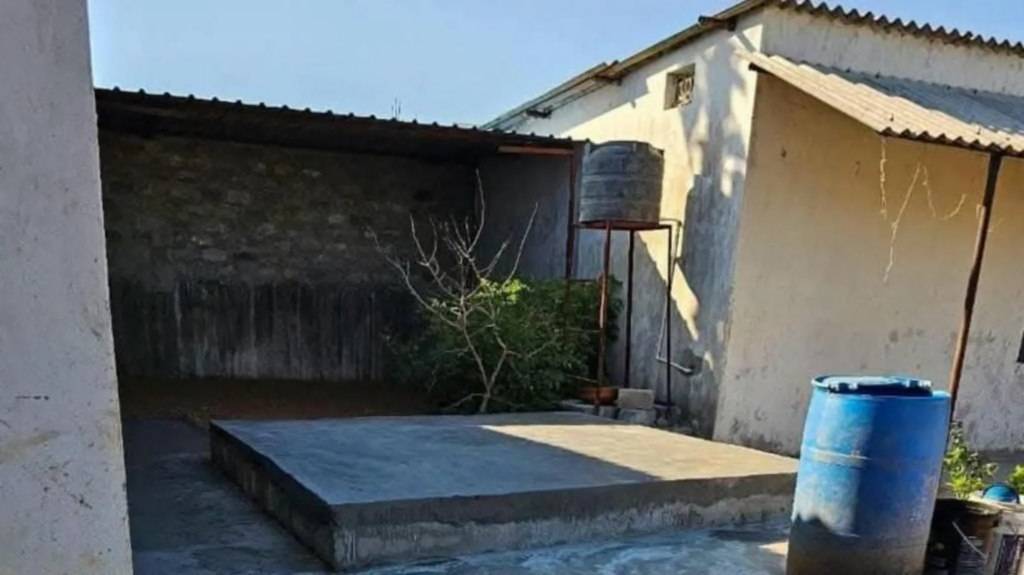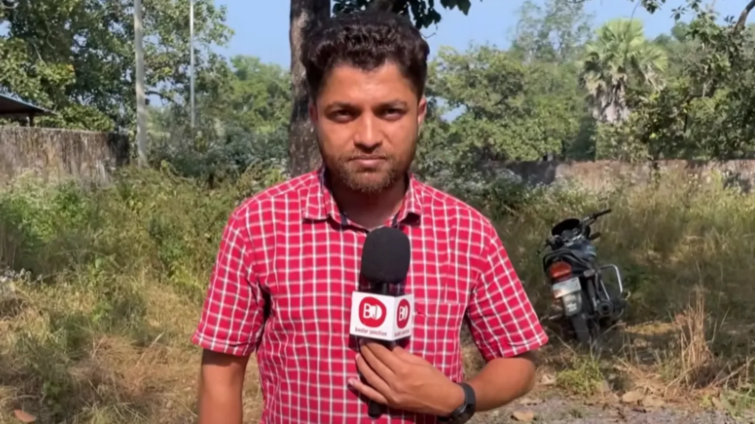The body of an Indian journalist who had reported on alleged corruption in the country has been found in a septic tank in Chhattisgarh state.
Mukesh Chandrakar, 32, went missing on New Year's Day and his family registered a complaint with the police.
His body was found on Friday in the compound of a road construction contractor in the Bijapur town area after officers tracked his mobile phone.
Three people have been arrested in connection with his death, reportedly including two of his relatives. A media watchdog has demanded a thorough investigation.
Police in the Bijapur district did not find anything during an initial visit to the compound on 2 January.
"However, after further inspection on 3 January, we discovered Mukesh's body in the newly floored septic tank near the badminton court," a senior police officer said, referring to the fact concrete slabs had been placed on top of the tank.
Police said his body showed severe injuries consistent with a blunt-force attack.
Mr Chandrakar, a freelance journalist, had reported widely on alleged corruption in public construction projects.
He also ran a popular YouTube channel, Bastar Junction.

Following his death, the Press Council of India called for a report "on the facts of the case" from the state's government.
The chief minister of the state described Mr Chandrakar's death as "heartbreaking".
In a post on X, he said a special investigation team had been formed to investigate the case.
It has been reported in Indian media that one of those under arrest over the journalist's death is his cousin.
One of the main suspects - compound owner Suresh Chandrakar, also a relative - is on the run.
Local journalists have held a protest demanding strict action against the alleged perpetrators.
Attacks on journalists reporting on corruption or environmental degradation is not uncommon in India.
In May 2022, Subhash Kumar Mahto, a freelance journalist known for his reporting on people involved in illegal sand mining, was fatally shot in the head by four unidentified men outside his home in Bihar.
Media watchdog Reporters Without Borders has said that an average of three or four journalists are killed in connection with their work in India every year, making it one of the world's most dangerous countries for the media.
Latest Stories
-
Police commend public for cooperation during presidential inauguration
4 minutes -
Ayisi kicks off 2025 with ‘New Beginnings’ – A clean slate and a great tune
9 minutes -
Legitimacy of 3 contested MPs confirmed for 9th Parliament
17 minutes -
Critiques of president Mahama’s Operation-Recover-All-Loot
28 minutes -
Tamale records 2 fire cases in a day
30 minutes -
Emmanuel Quartey Foundation donates to Weija Leprosarium
31 minutes -
See the colourful inauguration ceremony of John Mahama and Prof Opoku-Agyemang
36 minutes -
Effective property tax regime will boost tax-to-GDP ratio – US-based Associate Professor Peprah
37 minutes -
Entries open for 2025 Africa Youth in Tourism Summit
37 minutes -
FDAG criticises IGP’s public traffic direction; describes it as a shameful populist stunt
42 minutes -
British High Commission hosts UK-Ghana Diaspora Mixer for a 3rd year
47 minutes -
Mahama’s appointees must not forget the youth – NDC’s Nat Tetteh
59 minutes -
When the Ceiling Cracks: A call for gender activists to step back
1 hour -
Video: Mahama’s first day at work after inauguration
1 hour -
Delayed maintenance on WAPCo pipeline could lead to severe power outages – IES warns
1 hour

